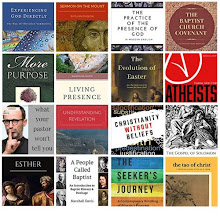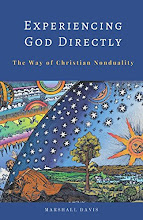You have likely heard about the new edition of Mark Twain’s “The Adventures of Huckleberry Finn.” After being banned from many school libraries, the classic is finally now becoming "sivilized." 127 years after first being published, Huck Finn is being edited for offensive language.
The revision is meant to eliminate certain unacceptable words, most notably the dreaded “N-word.” (I dare not even print it here, lest I be accused of insensitivity.) In spite of the fact that the racial slur is routinely used by African American youth and can be heard in music over the airwaves, it cannot be tolerated in American classrooms. The 219 uses of the “N-word” will now be changed to “slave.”
Huck’s Jim is not the only one getting an extreme makeover. Tom Sawyer’s “Injun Joe" is now "Indian Joe." (Why didn’t they go all the way and make him Native American Joe?) No longer is he a "half-breed;" he is now a "half-blood" (apparently so Harry Potter fans can understand it better.)
I am wondering if the Bible is next on the censors’ list. There is certainly much "hurtful" and "injurious” language and behavior in Scripture. On one occasion Jesus referred to Gentiles as dogs. On another occasion he accused Jews of being children of the devil.
In the Old Testament, God instructs the Hebrew armies to do what would be considered “war crimes” today. The Levitical laws of the Bible make the present–day enforcement of Islamic Sharia law look compassionate in comparison. The death penalty was routinely prescribed for what today would be considered personal preferences.
Any nation or regime that literally enforced the Torah would be instantly condemned for human rights violations. Mark Twain’s offenses against modern sensitivities pale in comparison to those of Holy Writ. Any of the so-called New Atheists can give you an exhaustive list of the moral offenses of Scripture and Scripture’s God.
I am not one to defend the morality of ancient Israelites of 3000 years ago or Christians of 2000 years ago. Nor do I feel the need to defend Biblical injunctions against their modern day critics. For the same reason I do not feel the need to defend the language of Mark Twain or censor American classics.
I do not have to like the vocabulary choices of Sam Clemens to appreciate his writings or the social message he was trying to convey. I do not have to advocate the death penalty for Sabbath-breakers or children who curse their parents to appreciate the principle behind the biblical laws.
Every work of literature is a product of its time. That is true of Christian scripture and American literature. Every author – whether 19th century or first century – is a reflection of the culture in which he lived. The key to understanding scripture or literature is to be able to hear the message without getting sidetracked by the cultural language in which the message is communicated.
After interpreting the Bible publicly for 35 years, I can tell the difference between the medium and the message. That is an art that is not practiced in schools today. Instead educators feel the need to rewrite literature to accommodate the feelings of the delicate American psyche.
How long will it be before the Bible is rewritten? Look in your local Christian bookstore soon for the New PC Testament (Illustrated). It has a Jesus sanitized of all references to hell and judgment, and the gospel without the gory violence of the cross. It omits the whole Book of Revelation altogether! What remains is a picture of Christ as a glassy-eyed Sage, mouthing inoffensive platitudes and pleasantries.
As it is written: “Behold, I lay in Zion a stumbling stone and rock of offense, and whoever believes on Him will not be put to shame.”














No comments:
Post a Comment